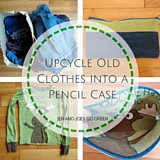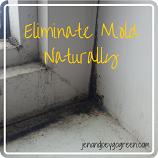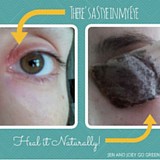I love wine. One of the best gifts I have ever received was a handpicked case of wine made up from wines all over the world from all different vineyards.I loved exploring each bottle and falling in love with new vineyards. Last year I decided to dig deeper into local wines and particularly organic wines. That proved to be more difficult than I thought as there is not a lot of organic wine available at our LCBO. Perhaps it is due to lack of demand or as I recently learned it may also be that winemakers are moving away from organic wine, for environmental reasons.
In October I had the pleasure of touring Flat Rock Cellars in the Niagara Region. I was really impressed with their sustainability initiatives so I asked the owner Ed why he doesn't make an organic wine. It seemed to me that if they are spending their efforts focusing on environmental practices surely they would produce an organic wine! His answered surprised me.
Wine grapes are very prone to pests so winemakers need to take measure to protect their vineyards. For organic vineyards they use copper sulfate as a fungicide. The problem with copper sulfate is that the copper leaches into the soil, contaminates local waterways and can have an adverse effect on fish and livestock populations. Because it is affecting the soil it can negatively affect the health of the wine crops. For this reason Flat Rock Cellars does not make a true organic wine. They have other practices in place that they confidently say they are being more responsible using a synthetic fungicide than if they use copper sulfate and produced a certified organic wine.
Perhaps when looking for a sustainable wine the choice doesn't have to be organic vs non organic. There are so many other factors that should be considered. How are the grapes farmed, how is the wine made, how is the wine bottled.
Crop Management
Traditionally vineyards use chemical pesticides and insecticides to protect their crops. It is cheap and it is easy. Looking for successful alternatives takes time, patience and research. Flat Rock Cellars uses multiple sustainable techniques in the place of chemicals:
- Compost is made from old grapes and spread on top of the soil to prevent weed growth
- Pheromones are used as an insecticide
- Radishes are planted to naturally break up the soil and allow water to easily penetrate
Production Process
Like any product the way in which it is made can have a major impact on how sustainable it is. The resources to produce any product make up a significant portion of its overall footprint. I think for that any product you purchase it is important to look at how it is made. Not just what goes into it but how it is taken from raw material to finished good.
When you first walk into Flat Rock Cellars you will not see the tanks hovering above you but rather they are below you. Flat Rock Cellars uses a gravity fed system that eliminates the need for pumps and therefore reduces the amount of energy required as their transport their wine through the production process. Such a simple change to make but overall a massive impact on the carbon footprint of their wine.
They have also implemented the following practices:
- Geo-thermal system for all heating and cooling that has reduced energy emissions by 80%
- Barrel rooms are built underground to allow for natural heating, cooling and humidity control
- Wine making equipment and barrels are sterilized using ozone instead of toxic chemicals, resulting in only water being the byproduct of this process
- Waste water used on site is treated using a natural organic and mineral bio filter
Cork or Screw Top
Gone are the days of a screw top meaning a cheap wine. Does the choice of cap make any difference in the wine. NO! (see Ed's funny video explaining). But there are environmental difference. There are chemicals in corks ( 2,4,6-trichloroanisole (TCA), and/or 2,4,6-tribromoanisole (TBA)) that leach into wine. When it comes to champagne those that still use cork only do so after the wine has aged. They bottle the champagne and close it with a crown cap. When it has aged they replace that crown cap with a cork. This practice just creates more waste! Flat Rock Cellars chooses to eliminate this unnecessary waste by keeping their bottles closed with that original crown cap.
Winery Management
It is one thing to grow your crops responsibly and engineer sustainable practices for your wine production. It is another thing to ensure that your entire process, including your retail outlet and office space is sustainable. When Flat Rock Cellars was built they put their retail space up on stilts resulting in no foundation being required. If they ever decide to move they can remove the stilts and easily return the land to what it was before they go there.

I'm so grateful to have found Flat Rock Cellars. Ed's goal is simply to make his vineyard healthier than it was the year before. I feel comfortable with drinking their product even though it is not organic because they have so many other practices in place that in my opinion go well beyond any organic certification. My advice to anyone looking for a sustainable wine is to get out there! Visit local vineyards, talk to winemakers, tour production facilities. ASK QUESTIONS. You just never know what gem you may find.
What is your take on organic wine? Have you found a vineyard that goes above and beyond with their sustainable practices?
I was not paid to write this post. I toured Flat Rock Cellars as part of the Blissdom Canada conference and wrote this post because I truly believe in what Flat Rock Cellars is doing.









Will definitely pick up a bottle on my next trip to the LCBO!
ReplyDeleteWe have found Frog Pond Farms in Niagara as an organic winery... but really, have only bought their organic grape juice. Its so good! I have no idea about their practices.... but you might be interested.
ReplyDeleteThis has given me a whole lot of things to think about in picking wines, although I must admit that I MOST enjoyed the video you linked to in the article about capping. I had had a nagging feeling about buying screwtop wine but he's right ... the taste is the thing, and I have never EVER been able to tell whether a wine came from a screwtop or cork (or even a box!) unless there were bits of cork floating in it, which is never a plus.
ReplyDeleteI also like the idea of using radish to break up the soil, and will experiment with it (on a much smaller scale) at home!
Buying screwtop was such a hard thing to overcome because I always felt like I was buying "cheap" wine.
ReplyDeleteI didn't realize about the cork. What pesticides do they use for the grapes? (PS I grow them too but for table grapes.)
ReplyDeleteI'm not sure what they use Anna. Let me ask.
ReplyDelete